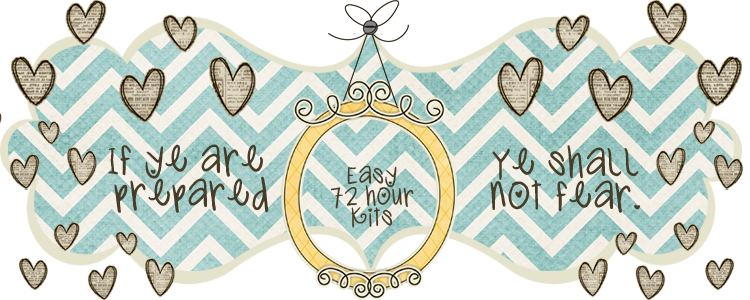Are you ready for this? The first (and easiest) step to preparing your 72-hour kit is to find something to store it in. Each member of your family should have their own personal kit. If you have children who won't be able to carry their own kits, you'll prepare their kits within your own.
This container should be:
1. Grab and go. If you are able to evacuate by car, then you could carry lots with you, but if you are on foot, you may want something a bit more portable.
2. Can handle various weather conditions.
3. As waterproof as possible.
4. Size-appropriate for the carrier. (A smaller kit for a child, for example.)
Backpacks, luggage, and duffel bags are all good choices. Some people also choose to use a garbage can on wheels. Personally, I think that might be too difficult to maneuver around debris and into a car.
Keep in mind, whatever container you use should be as sturdy as possible. If you can't afford to go out and buy something new and super-strong, then please don't! We'll start out using an old set of luggage that we don't use anymore, and eventually upgrade. Things inside will be packed in labeled ziplock bags and garbage bags to keep them dry.
Child-sized backpacks are a great option for those who don't feel strong enough to carry much at once, and for children.
It's recommended that each person carry $50 in their kit in case of emergency. If you save $3/person each week from now (the first week of March) until the end of June, you'll have $50 for each of their kits. That's 17 weeks.
Whew! That's it for week one. If you want to start planning ahead, now would be a great time to start looking for a battery-powered radio.
Bonus:
When you go to the grocery store this week, pick up 3 cans of whatever is on sale. You'll have a 3 month supply of food in no time!
